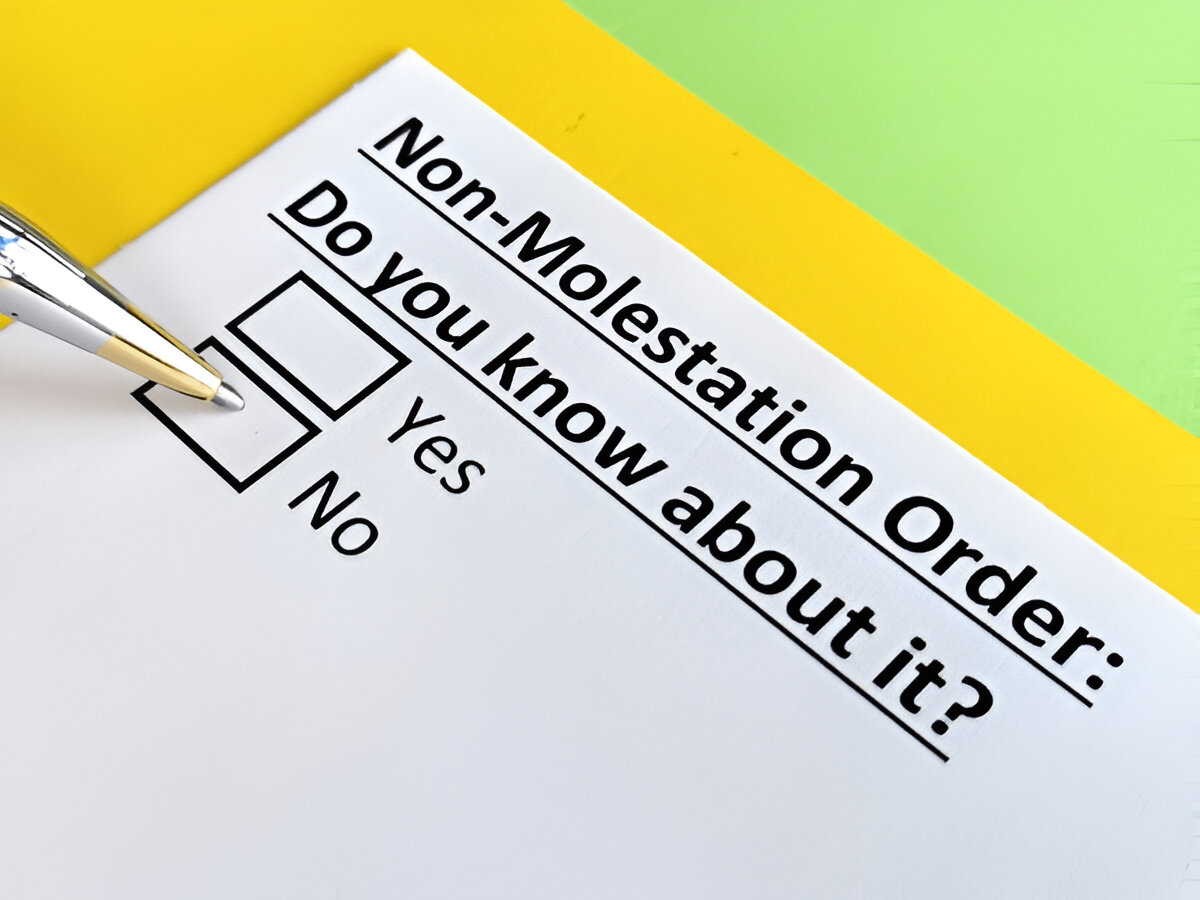What Is a Non-Molestation Order?
A Non-Molestation Order is a type of injunction made by the family court to protect someone (and sometimes their children) from harassment, threats, or violence by a partner, former partner, or family member.
It is designed to stop unwanted behaviour such as:
- Physical violence or threats of violence
- Harassment, intimidation, or controlling behaviour
- Unwanted communication (calls, texts, social media contact)
- Attending a person’s home, workplace, or children’s school
The order creates clear legal boundaries to help keep the applicant safe.
Who Can Apply for a Non-Molestation Order?
Applications can be made by:
- A spouse, ex-spouse, or former partner
- Someone you are living with or used to live with
- Someone you share a child with
- Certain close family members
How Long Does a Non-Molestation Order Last?
Typically, these orders last for 6–12 months, but they can be extended if necessary.
What Happens if You Breach a Non-Molestation Order?
Breaching the terms of the order is a criminal offence. You could face:
- Arrest by the police
- A fine
- A prison sentence of up to 5 years
Can a Non-Molestation Order Be Contested?
Yes. If you believe the order has been made unfairly or without evidence, you have the right to challenge it in court. While the order is in place, however, you must fully comply with its terms.
How Capital One Solicitors Can Help
At Capital One Solicitors, we:
- Advise clients who have either applied for or received a Non-Molestation Order
- Help challenge unfair or unnecessary orders
- Represent you in urgent hearings
- Ensure your rights and safety are protected throughout the process
📞 Contact our Family Law team today for immediate and confidential advice about Non-Molestation Orders.
Why Have I Received a Non-Molestation Order?
If you have received a Non-Molestation Order from the family court, it usually means that a former partner or family member has applied to the court claiming that they feel threatened, harassed, or at risk of harm because of your behaviour.
The court issues these orders as a protective measure. They set out clear legal boundaries, usually preventing you from:
- Contacting the applicant (directly or indirectly)
- Visiting their home or place of work
- Engaging in behaviour that could be perceived as harassment, intimidation, or abuse
⚠️ Important: Breaching a Non-Molestation Order is a criminal offence and can lead to arrest, fines, or even imprisonment.
Can a Non-Molestation Order Be Contested?
Yes. If you believe the allegations made against you are unfounded, there are two main ways to respond:
- Do not oppose the order – You allow the order to remain in place without admitting to the allegations. This may be the quickest way to resolve matters but still places restrictions on you.
- Actively contest the order – You challenge the order in court by presenting evidence to show that the applicant’s claims are unfounded. This may involve:
- Medical records
- Police reports
- Witness statements
- Other documents that support your version of events
While you are contesting the order, you must still fully comply with its terms.
How Can I Challenge a Non-Molestation Order?
If you wish to challenge the order, it is crucial to act quickly. Here’s the usual process:
- Seek legal help immediately – Speak to a specialist family solicitor to understand your options.
- Gather evidence – Collect documents, records, or witness statements that support your case.
- Attend court hearings – You will be able to put your side of the story before a judge.
- Mediation or negotiation – In some cases, issues may be resolved without a contested hearing.
- Comply with the order – Even while challenging it, you must follow the terms strictly.
- Court decision – The judge will decide whether to uphold, vary, or discharge the order.
Why Choose Capital One Solicitors?
At Capital One Solicitors, we:
- Provide immediate advice and representation when a Non-Molestation Order is received.
- Help gather and present evidence to defend your position.
- Support you through hearings and negotiations.
- Work swiftly to protect your rights, reputation, and future.
📞 Contact our Domestic abuse solicitor / Family Law solicitor today for urgent and confidential advice if you have received a Non-Molestation Order.







